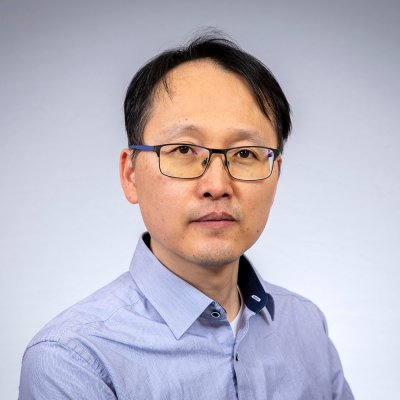Bum-Kyu Lee

PhD: The University of Texas at Austin (2011)
Postdoctoral training: The University of Texas at Austin (2020)
About
The Lee lab is mainly interested in transcriptional and epigenetic gene regulations. Gene expression programs at the transcript level are the outcome of the orchestrated activity of multiple players including transcription factors (TFs), cis-regulatory elements (CREs), miRNAs, non-coding RNAs, epigenetic regulators, and three-dimensional chromatin architecture. Dysregulation of gene expression programs is associated with a broad range of diseases such as developmental disorders and cancers. Employing experimental and computational analyses, the Lee lab seeks to identify novel factors governing the development of the embryo as well as the placenta using embryonic stem (ES) and trophoblast stem (TS) cells as model systems. The lab has the following specific research interests.
- Functional elucidation of novel factors in placenta development: The Lee lab has recently identified TS cell-specific enhancers, super-enhancers (SEs), and more than 150 novel TS cell-specific TF candidates that are associated with SEs in mouse TS cells that are the origin of the placenta. Using a wide range of experimental and computational approaches, the Lee lab seeks to understand the mechanistic roles of these novel TS cell-specific TFs that are responsible for the placenta development and placenta-related disorders. In addition to TFs, the lab will investigate the roles of SE-associated RNA binding proteins, lncRNAs, miRNAs, epigenetic regulators, and chromatin landscapes such as chromatin accessibility, topologically associated domains (TADs), and histone modifications in TS cells to fully understand the molecular mechanisms underlying placenta development.
- Cataloging SNPs and biomarkers responsible for disease phenotypes: The Lee lab is interested in understanding how and to what extent genetic variations alter transcription factor bindings and gene expression, which subsequently causes diseases such as developmental disorders and cancers. Cataloging tfQTLs and eQTLs in normal and diverse disease phenotypes will provide a foundation to evaluate disease-associated key alleles and may reverse the phenotypes by restoring the SNPs or mutated alleles that are responsible for the diseases using the CRISPR gene-editing technique. Additionally, the lab is also interested in the discovery of putative biomarkers of diseases through analyses of large scale transcriptomes.
- Roles of transposable elements: The Lee lab investigates the specificity and diversity of transposable elements that are mobile DNA sequences and implicated in genome evolution. Although transcription of transposons must be tightly controlled to suppress mutagenic events of the genome, a tiny proportion of transposons still remain active and mobile. They often contribute to the genesis of novel gene regulatory elements. Using the system and molecular biology techniques we will interrogate transposable elements that are responsible for species-specific functions or phenotype during the early embryo development in different species.
- Conversion of cell types medicated by tissue-specific TFs: A transcription factor can play diverse roles in different cellular contexts. Ectopic expression of a TF or a combination of TFs can convert a cell type to another one that has completely different cellular characteristics. The Lee lab is interested in identifying TFs that can change cell types and understanding the mechanisms underlying the conversion of cell types mediated by TFs.
Research Interests
- Stem cell biology
- Systems biology
- Placenta development
- Transcriptional and epigenetic gene regulations
- Gene regulatory network
- Transposable elements
- Disease-associated SNPs and biomarker discovery
- Big data analysis
Research Concentrations
- Cancer and stem cells
- Genes and genomes


